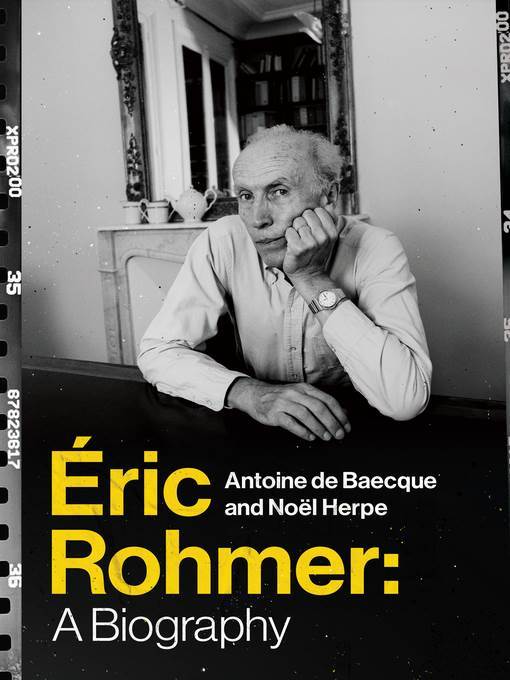
Éric Rohmer
A Biography
کتاب های مرتبط
- اطلاعات
- نقد و بررسی
- دیدگاه کاربران
نقد و بررسی

Starred review from April 11, 2016
Eric Rohmer (1920–2010) was one of the most distinguished filmmakers of the French new wave, but as a person, he has remained an enigma. In this remarkably dense and absorbing biography, de Baecque (Truffaut: A Biography) and Herpe (René Clair) attempt the difficult task of unmasking Rohmer, and they succeed with aplomb. Drawing on Rohmer’s personal archives, they reveal an intensely private man, born Maurice Sherer in the central French town of Tulle, who lied about his past, assumed multiple pseudonyms, and completely concealed his career from his mother, who died without ever knowing her son was an Academy Award–nominated director. While illuminating Rohmer’s personal life, the authors also explore the intellectual pursuits and artistic methods that informed acclaimed films such as My Night at Maud’s (1969) and Claire’s Knee (1970). In less capable hands, this could be a dry read, but the authors pull off the high-wire act of appealing to both film scholars and lay readers with a combination of comprehensive research and engaging storytelling. The book will foster a renewed appreciation of a complex artist and the remarkable body of work he left behind.

Starred review from May 1, 2016
This definitive critical biography of Nouvelle Vague filmmaker Eric Rohmer (1920-2010), born Jean-Marie Maurice Scherer, is written in an accessible style and copiously illustrated throughout with frame grabs, personal photographs, behind-the-scenes shots, and press materials. Rohmer's 25 films (e.g., My Night at Maud's; Claire's Knee; Beau Marriage) are covered in chronological order, offering detailed insights into not only the films but also the director's method, his relationship with his actors, and the development of his cinematographic technique. Scrupulously researched, with an exhaustive bibliography and a thorough index, this obvious labor of love by de Baecque (cinema, Univ. of Nanterre) and Herpe (senior lecturer, Universite de Paris VIII) demonstrates an understanding and appreciation for Rohmer's unique vision, giving readers a clear and comprehensive overview of his output. VERDICT Compulsively readable, this volume is a model of scholarship and style that no serious cinephile's library should be without.--Wheeler Winston Dixon, Univ. of Nebraska
Copyright 2016 Library Journal, LLC Used with permission.

Starred review from June 1, 2016
The senior one of the five critics-turned-directors who created the French New Wave cinema was the group's most dedicatedly personal. He segregated his intimate life as Maurice Scherer, bourgeois Catholic family man, and his working life as Eric Rohmer, so rigorously that his mother never knew that he was not a professional teacher. His biographers closely observe that segregation. In this very big book, there is vanishingly little about Scherer's adult experiences, and his wife and sons are cited exceedingly sparingly. Instead, it is the record of a filmmaking life, penetratingly illuminating Rohmer's distinctive methods of preparing scripts and selecting and rehearsing actors and technicians as well as controlling the release of finished work. Stories long predated development into films, actors were brought to Rohmer by friends as often as they responded to casting calls, location shooting with an absolutely minimal crew was insisted upon, and venues for premieres were carefully chosen. The resulting moviesfamously belonging to the series, Six Moral Tales, the Four Seasons, and Comedies and Proverbs, with freestanding titles based on literary classics and French history when they weren't still more witty, philosophical romantic comediesfeature smart, middle-class men and women, near-invariably young and beautiful, especially the women. Despite an idiomatically haphazard translation, biography of the year for cineasts.(Reprinted with permission of Booklist, copyright 2016, American Library Association.)

























دیدگاه کاربران